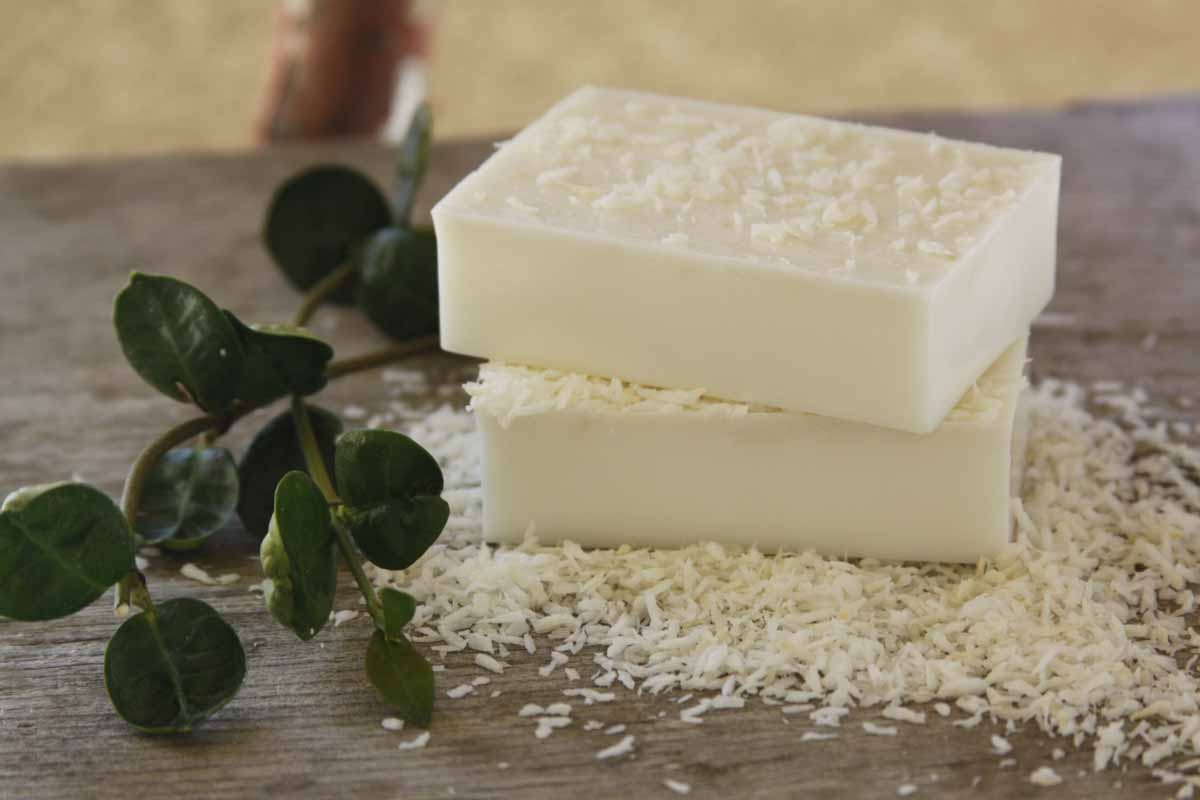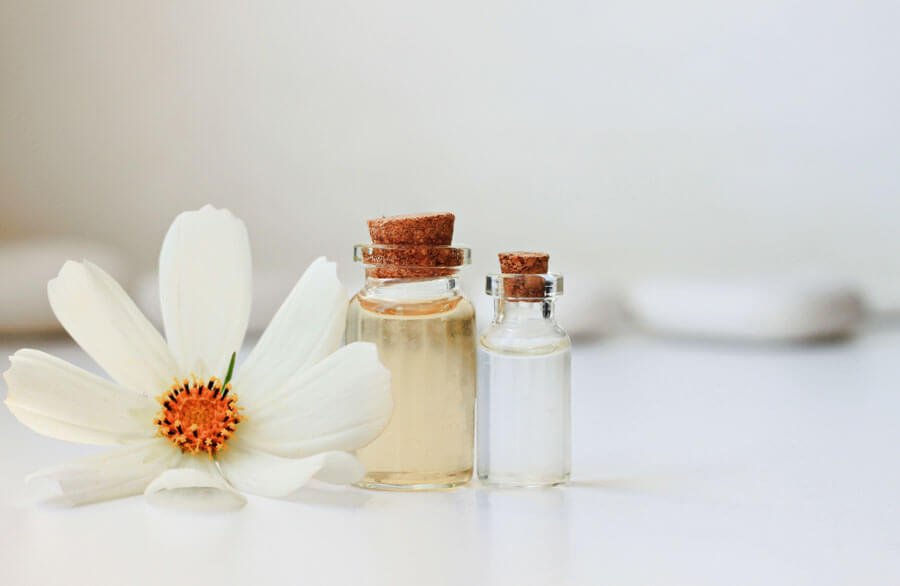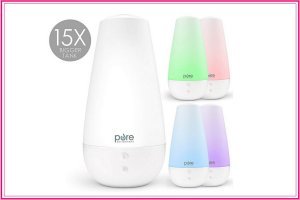Jasmine: The “King of Oils”. The “Queen of the Night”. The Aphrodisiac and Anti-Depressant.
Jasmine is known as the King of Oils, Rose is the Queen. This is because of its masculine floral scent that it possesses. It has been known as the King of Oils since ancient times. This highly concentrated oil has many health benefits that may prove beneficial for your life.
Origins of Jasmine
Jasmine, also known as the “Queen of the Night” or “King of Oils” is a highly intoxicating plant. Its strong, heavy yet sweet scent has been used for years to invoke love and happiness.
Jasmine belongs to the Oleaceae family. The jasmine plant can grow upwards of 10-15 feet in height or 3-5 meters. The plant has dark green leaves with white flowers. These flowers are what are harvested to be used in the making of the jasmine essential oil. There are over 200 species of jasmine that can get made into essential oil, however, commonly used jasmine for essential oil purposes is common jasmine or Jasminum Officinale Though Spanish or Royal jasmine, Jasminum Grandiflorum , is sometimes also used.
Jasmine grows in the summer and into the fall and the flowers bloom overnight. Because the flowers bloom at night this is when they are harvested to produce the essential oil. Fun fact: it takes nearly 8000 carefully picked jasmine blossoms to produce about 1 gram or 1 mL of Jasmine Absolute essential oil. The flowers have a powerful scent that explodes into the air as they bloom at night. The scent may be strong but it is also sweet in nature and pleasing to the senses. The extracted essential oil is thick in consistency and is a light reddish brown in color.
Jasmine has been used for ages as a strong aphrodisiac as well as in perfumes. It is one of the main ingredients in the famous Chanel No. 5 and France’s Eau De Sauvage. Jasmine is used in many cosmetics, perfumes and body care product because of its pleasant sweet scent and also because of its many health benefits.
Jasmine is also used in many culinary dishes to add flavor. It has been known to be used in drink, confectionery and desserts. Pakistan highly values this plant hence why it is the country’s national flower.
In India the Hindus regard it as a holy flower. While in South India the jasmine flower is used in garland to hang around their necks or in their cars or as decoration on the hair. In some Asian cultures jasmine has been used to help with childbirth and labor problems. It is also used to help with ones libido.
The name Jasmine has been given to many baby girls because of the strength and love the name stands for. Jasmine has been inspiring poets and lovers around the world for centuries. Cleopatra and Louis XVI used jasmine as a perfume to entice their followers and give themselves strength.
Jasmine: Benefits and Your Health
Jasmine has numerous health benefits. It is known for many years for its aphrodisiac properties as well as for its uplifting and anti-depressant properties. But these are only a couple of the many health benefits that jasmine has.
Jasmine is great for the skin because it helps to rehydrate it. It is also great in relieve PMS symptoms and pain.
It has antiseptic properties which help with wound care and healing. It also helps with colds relieving coughing fits and mucus build-up.
Not to mention jasmine is great for helping to reduce stress and anxiety, hence why it is widely used during yoga to help calm the mind and the body.
Jasmine works in many ways throughout the body to help deliver the health benefits you desire.
15 Jasmine Essential Oil Uses

There are so many ways to use jasmine essential oil. Jasmine not only helps the mind and the libido it also helps in many other areas of the body, delivering to the body its many health and healing benefits.
Antiseptic: Jasmine has wonderful antiseptic and disinfectant properties. It helps to fight off infection reducing and elimination the infection. It helps to clean wounds preventing and reducing infections. It can also help in removing the buildup of mucus and phlegm that can be present in the respiratory system during a cold.
Aphrodisiac: Jasmine works well as an aphrodisiac by creating a romantic feeling and boosting the libido. It has been traditionally used to decorate a newly wedded couple’s room to help promote coupling their first time together as a married couple. It helps to reduce many of the problems that can arise on a couple’s first time together sparking romance and sexual desires.
Related: 14 Aphrodisiac Essential Oils
Cognitive Ability Aide: Jasmine is a natural energy booster. Simply inhaling jasmine in the morning will help to awaken the senses allowing you to be more aware and alert for the upcoming day. It also helps to increase body temperature and heart rate along with the brain’s activity to help increase productivity and learning.
Related: 5 EO Blends for Focus & Concentration
Depression and Anxiety: Jasmine has uplifting properties which help to create as more positive feeling in the brain. It helps to create happiness in a person who is suffering from depression or anxiety. It helps to calm and relax both the body and the mind creating a sense of peace throughout a person. Simply inhaling it during a depressive time or a state of anxiety will help to release serotonin to help reduce the symptoms and boost the emotional state.
Immune System Booster: Jasmine helps to boost the immune system by helping to fight off infection in the body thus helping to prevent or reduce infection. If an infection is present diffusing the essential oil in your home will help to speed up healing time thus reducing and finally eliminating the infection in the body; this is especially helpful in respiratory infections.
Labor Aide: Weird but true Jasmine does help with childbirth. It helps to ease and reduce the pain associated with childbirth helping the mother to feel calmer and more relaxed during the birthing process. Furthermore jasmine helps to reduce the pain of recovery from childbirth as well as helping to reduce the symptoms of postpartum depression.
Related: How to Use EOs for Pregnancy Symptoms
Menopause Aide: When jasmine is applied to the skin it can help to relieve and reduce the symptoms of menopause. Helping to decrease emotional and physical symptoms that can occur in the body during menopause. This helps to boost the emotional state, reduce hot flashes and increase energy levels of those women during menopause. It also helps to decrease depression, anxiety and stress that can often occur during menopause as well.
Related: 7 EOs for Hot Flashes & Night Sweats
Muscle Care: Jasmine is excellent in helping to treat sore muscles. It helps to reduce the pain and inflammation in muscles caused by injury. As well it helps to reduce muscle spasms that can also be caused by injury. By helping to calm and relax the body the muscles are able to calm and relax and heal more quickly due to the increase in blood flow and circulation. Read More: 9 EOs for Sore Muscles
Related: 9 EOs for Sore Muscles / Muscle Pain
Pain and Inflammation Reducer: Jasmine helps to reduce pain and inflammation in the body by helping the body to get rid of harmful infections causing the pain and inflammation and by promoting healing in the body through increase blood flow and circulation. This is especially important when it comes to respiratory infections, muscle injury and childbirth.
PMS Aide: Jasmine helps to regular the period cycles and helps to reduce the pain and inflammation that is often associated with the cycle. It also helps to reduce many of the PMS symptoms such as fatigue, emotional or hormonal imbalances, pain and nausea. By helping to relieve many of the symptoms associated with PMS it helps a woman to feel more in control and comfortable during their time of the month.
Related: EO Remedies for PMS & Menstrual Cramps
Postpartum Aide: Jasmine helps in reducing the symptoms and length of postpartum depression that often occurs in most women after childbirth. It helps to regular and stabilize hormones and emotions after childbirth allow the mother to feel calmer, more relax and in control of their own body after childbirth.
Respiratory System: Jasmine helps the respiratory system by helping to reduce and eliminate the build-up of phlegm and mucus in the lungs and sinuses. It helps to clear this away through coughing and expelling the build-up through the cough. It also helps to clear out congestion that may be present in the system thus reducing snoring and post-nasal drip. Its sedative property will help a person to rest and sleep better while getting over a respiratory problem.
Related: How to Safely Inhale EOs
Sedative: Jasmine is great for sleep and restless nights. It helps to calm and relax the mind and the body allowing for a more restful sleep. It helps to promote a longer, deeper more restful sleep thus helping to heal the body of many ailments such as respiratory problems, depression or stress.
Read More: 17 Natural Sleep Aid EOs
Skin Care: Jasmine helps the skin in a couple of ways. It can help to reduce the scars present on the body by helping to fade if not eliminate the look of the scar. It also helps to hydrate the skin brining moisture to the skin thus reducing cracking, dryness and premature aging. Jasmine has also been known to help in treating eczema and dermatitis because of the properties stated prior. It may also help to reduce and even eliminate those pesky stretch marks!
Related: 7 EOs for Cellulite
Stress Aide: Jasmine helps to relax and calm the body and mind thus helping to reduce stress. It helps to uplift the mind reduce a highly emotional state that can cause serious stress. It helps to create a sense of confidence and optimism to help a person tackle their day more effectively and less emotionally.
Jasmine Essential Oil Recipes

Jasmine, like many other essential oil, can be used alone or combined with other essential oils to create a blend or a tonic. Since jasmine has many health benefits it can be used in any number of recipes and mixes well with many of the other essential oils out there. Mix and match jasmine with other essential oil and recipes to create your own signature jasmine recipe.
Jasmine Perfume
Ingredients:
- 30 drops jasmine essential oil
- 5 drops vanilla essential oil
- 5 drops lavender essential oil
- 5 drops orange essential oil
- 2 Tbsp. vodka
- Orange blossom water
Instructions:
- In a jar, bowl or bottle mix together all of the above ingredients
- Cover the container and let sit on the counter for at least 2 days. Make sure it is at room temperature and out of direct sunlight.
- Add in some orange blossom water and mix well.
- Transfer the mixture to an old perfume bottle or a spray bottle, preferably glass or metal.
- Store at room temperature and use as desired.
That Time of the Month Massage Blend
Ingredients:
- 2 drops jasmine essential oil
- 4 drops marjoram essential oil
- 10 mL carrier oil of your choice (argan, coconut, sesame, sweet almond, jojoba, grapeseed, macadamia)
Instructions:
- In a 10 ml roller bottle combine all of the above ingredients together.
- Mix well.
- Massage onto the stomach and/or lower back as needed.
Foaming Face Wash Blend
Ingredients:
- 8 oz. mild unscented castile soap
- 8 oz. distilled water
- 1 Tbsp. sweet almond oil
- 20 drops jasmine essential oil
- 10 drops geranium essential oil
Instructions:
- In a foaming soap dispenser combine all of the above ingredients together.
- Mix well.
- Pump one pump into the palm of your hands and massage into face. Rinse
- Use twice daily as needed.
Bring the Romance Diffuser Blend
Ingredients:
- 1 drop jasmine essential oil
- 1 drop patchouli essential oil
- 1 drop orange essential oil
Instructions:
- Combine all of the above ingredients together in a diffuser.
- Diffuse throughout the air to induce feelings of romance and sexual desire.
Jasmine Coconut Sugar Scrub
Ingredients:
- 10 drops jasmine essential oil
- ½ cup coconut oil
- 1 cup sugar
Instructions:
- Melt the ½ cup of coconut oil in the microwave or over the stove. Make sure it is completely melted.
- Transfer the melted coconut oil to a bowl and add in the sugar.
- Mix well.
- Mix in the jasmine essential oil. Be sure it is well combined into the mixture.
- Transfer the mixture to a Mason jar and seal.
- Use as needed in the shower. Apply to the body, massaging it in and then rinse off.
Jasmine Bath Salts
Ingredients:
- 15-20 drops jasmine EO
- 3 cups Epsom salts
Instructions:
- In a glass jar combine the above ingredients together.
- Mix well.
- In a warm bath add ¼ – ½ cup of the mixture. Lay back and enjoy!
Here are a few other ideas you can try out using jasmine essential oil:
- Try adding a few drops of the essential oil to a diffuser to diffuse throughout the room to help reduce depression and stress or to help promote rest and relaxation.
- Try mixing a few drops of jasmine essential oil with a carrier oil and applying it to sore muscles or wounds on the skin. Also try applying this to the temples or neck to help reduce the feeling of stress and depression.
- Add a few drops of jasmine to a bath and allow it to help soothe and relax you.
- Try a jasmine essential oil inhaler for on the go relief.
- Massage some jasmine onto your stomach to help relieve symptoms of PMS and menopause.
- Mix a couple drops of jasmine essential oil with your face lotion and massage onto and into the face to help reduce fine lines and wrinkles.
- Try some jasmine tea to help promote healing, rest and relaxation.
Possible Side Effects and Cautions to Be Aware of When Using Jasmine Essential Oil
Just like all over essential oils there are cautions and side effects that need to be noted.
Jasmine essential oil is a safe oil to use. It is not known to cause sensitivity, irritation or toxicity. But it should still be used in moderation. Large doses of the essential oil can reduce cognitive ability and increase sleep due to its sedative properties, so large doses are not recommended for this reason.
When it comes to topical application be sure to always test the oil on a small patch of skin to ensure you have no sensitivity or irritation towards the essential oil. Diluting the essential oil may help decrease sensitivity and irritation if present.
Due to jasmine potent scent it can induce headaches, nausea and skin reactions in those with sensitivity to the scent. Caution should be used here. Try using a more diluted dose or simply sniff the essential oil prior to use to help know if the essential oil could be bothersome to your senses.
There is much controversy when it comes to women who are breastfeeding. Some say that it is great to help increase and induce lactation, while others state that it helps to reduce the production of milk. It is also not recommended to use jasmine essential oil in your final stages of pregnancy because of its high relaxing and sedative states can induce labor by relaxing the uterine wall.
Caution should always be exercised around children and pets due to their high sensitively to most essential oils.
What to Look for When Purchasing Your Jasmine Essential Oil
What to look for when it comes to purchasing your jasmine essential oil. Well there are a few things that you should look for and note when you are looking for a company or manufacturer.
First you will want to ensure that you are purchasing your essential oil from a reputable company and/or manufacturer. You will want to ensure that this company or manufacturer harvests the jasmine flowers at the correct time, using the correct harvesting methods.
You will also want to ensure that they extract the jasmine essential oil through the process of solvent or enfleurage extraction. You will want to check the ingredients of the jasmine essential oil bottle to ensure you are purchasing true or absolute essential oil and not a carrier oil with jasmine added to it.
Note that the essential oil that is produced year to year can vary because of the environment. This is normal but is something to consider as prices could change to reflect how plentiful or devastating the harvest was that specific year. Temperature, humidity, moisture and other environmental elements can all play a factor in the production and harvest of the jasmine blossoms.
How to Make Jasmine Essential Oil at Home
Jasmine essential oil is not an easy essential oil to produce. Since the jasmine flowers are fragile it makes for a careful harvest and extraction process. The flowers have been known to bruise easily upon harvest which can lead to an unpleasant fragrance when the oil is produced.
In order to produce the highest quality of essential oil, jasmine should be harvested at night when it is full bloom. This will ensure that the chemical makeup inside of the jasmine flowers is at their prime for extraction.
Jasmine essential oil is typically extracted through the process of solvent extraction or enfleurage extraction. Both of these processes soak the jasmine flowers to help extract the essential oil from the flowers.
Enfleurage extraction is done by soaking the jasmine flowers in odorless plant oil or animal fats. Alcohol is then added to the mixture to pull the essential oil from the fat. Then the fat is separated from the mixture and the alcohol is allowed to evaporate to leave the end result of the jasmine essential oil.
Solvent extraction is like that of the above enfleurage extraction however water and organic solvents are used to extract the oil from the jasmine flowers. The water and the solvent are then separated and removed from the mixture leaving behind the jasmine essential oil.
It should be noted that the chemicals that are sometimes used in the solvent extraction process can change the chemical makeup of the jasmine essential oil. Do your research on how the extraction is done and what is used in the extraction process.
Both processes can be time consuming and difficult to perform, especially if you do not have the right equipment. That is not to say that it cannot be done, but just note the pros and cons of each process prior to trying it on your own.
Conclusion

Hopefully you have found this article helpful. If you have any questions, comments or recommendations of your own please let us know in the comment section below.












1 thought on “15 Jasmine Essential Oil Benefits & Uses (Plus Recipes & Application Tips)”
In the jasmine perfume, I am not sure of the amount of orange water… drops, ounces, til I like the smell,…? TIA